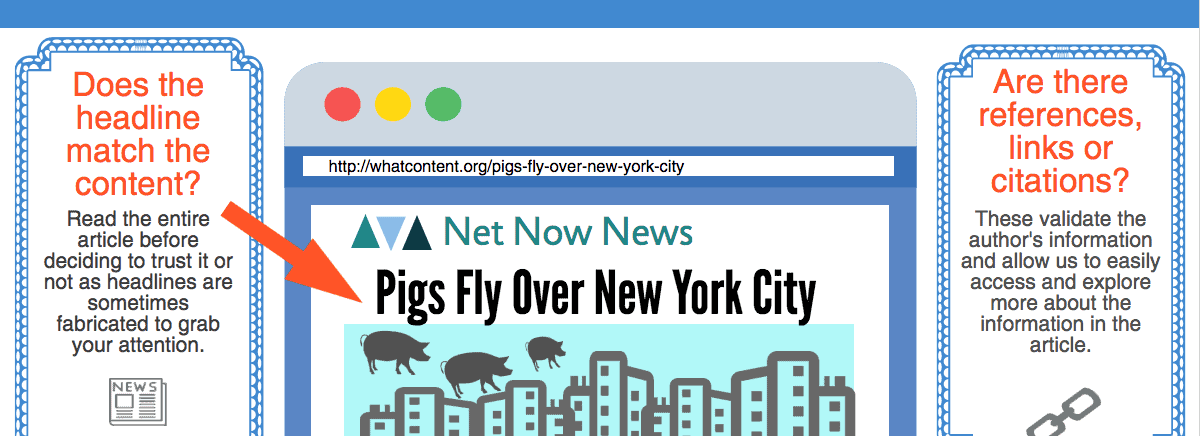Blog
We recently posted, “10 Ways to Spot a Fake News Article,” which highlighted key items to look for on a website when determining its credibility. The infographic found here summarizes the content from the blog post and students can use it as a guide when using news sources in research. Post, print, or share it with your students or others!
Looking for other resources related to website credibility? We’ve listed some of our favorites below the infographic!
Channel One News: Lesson Plan: How to Spot Fake News
This lesson plan, by Channel One News (a Houghton Mifflin Harcourt company), includes discussion questions, a writing activity, and a video that can be shown to students to help them understand that they shouldn’t believe everything that they read or hear. It highlights fake information posted on social media sites and also discusses how “official” looking news sites could actually be fake.
The News Literacy Project’s Ten Questions for Fake News Detection
This checklist can be distributed to students to help them determine if a news article is fake or not. We love how they included red flags throughout the checklist. Too many red flags circled? This means that the website the student is rating most likely contains false information!
Websites to Test Your Students
Have you seen our blog post, “How Savvy Are Your Students?: 7 Fake Websites to Really Test Their Evaluation Skills.”?
The websites listed on this blog post all contain incorrect information. See if your students are able to put the pointers from the infographic to the test and catch on that these sites are not credible.
Skills and Strategies: Fake News vs. Real News: Determining the Reliability of Sources
This page includes the TED-Ed videos, How to Choose Your News, and How False News Can Spread. It also features discussion questions for students to answer, as well as an activity where students are asked to impose a 48-hour news blackout.
Related blog posts:

